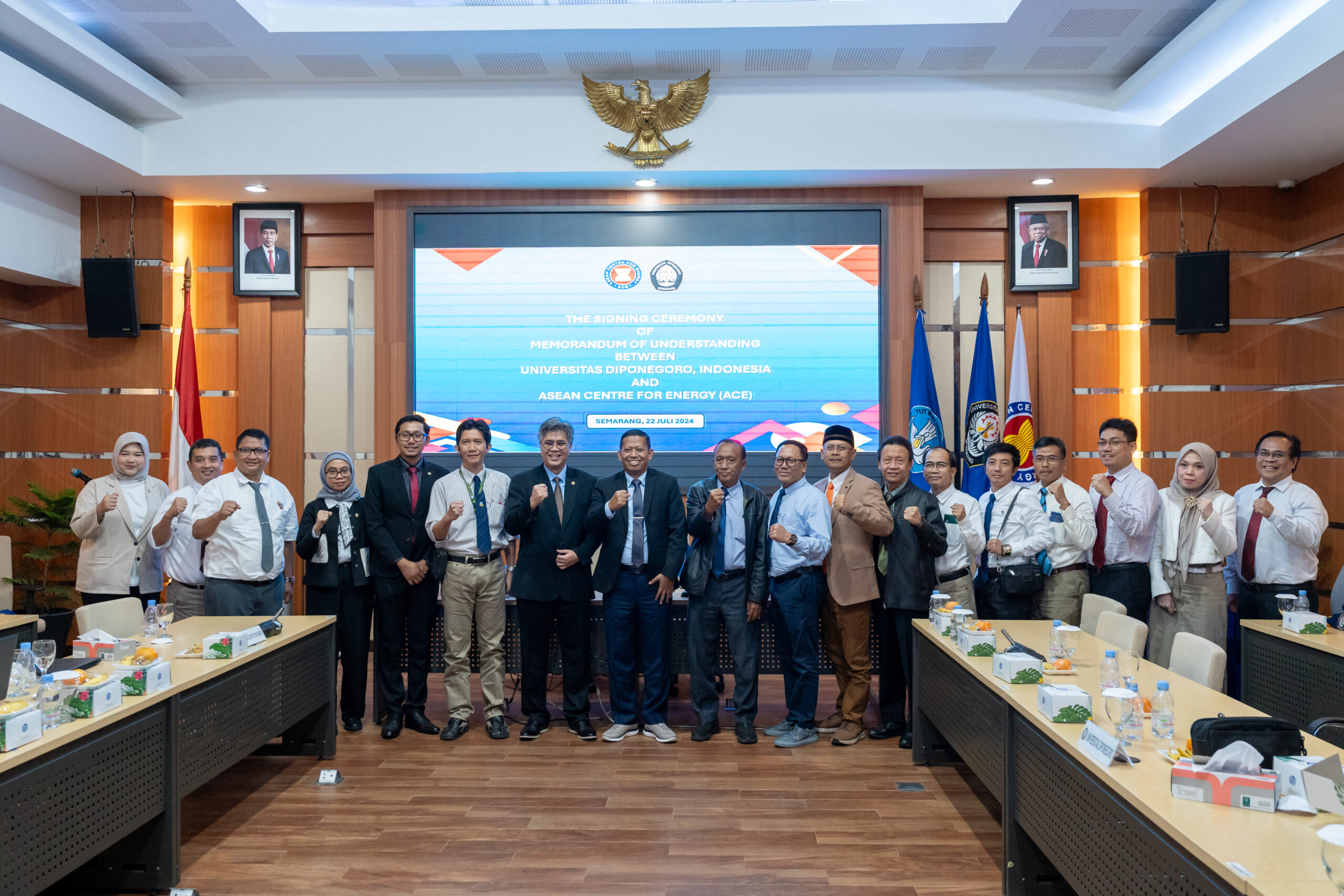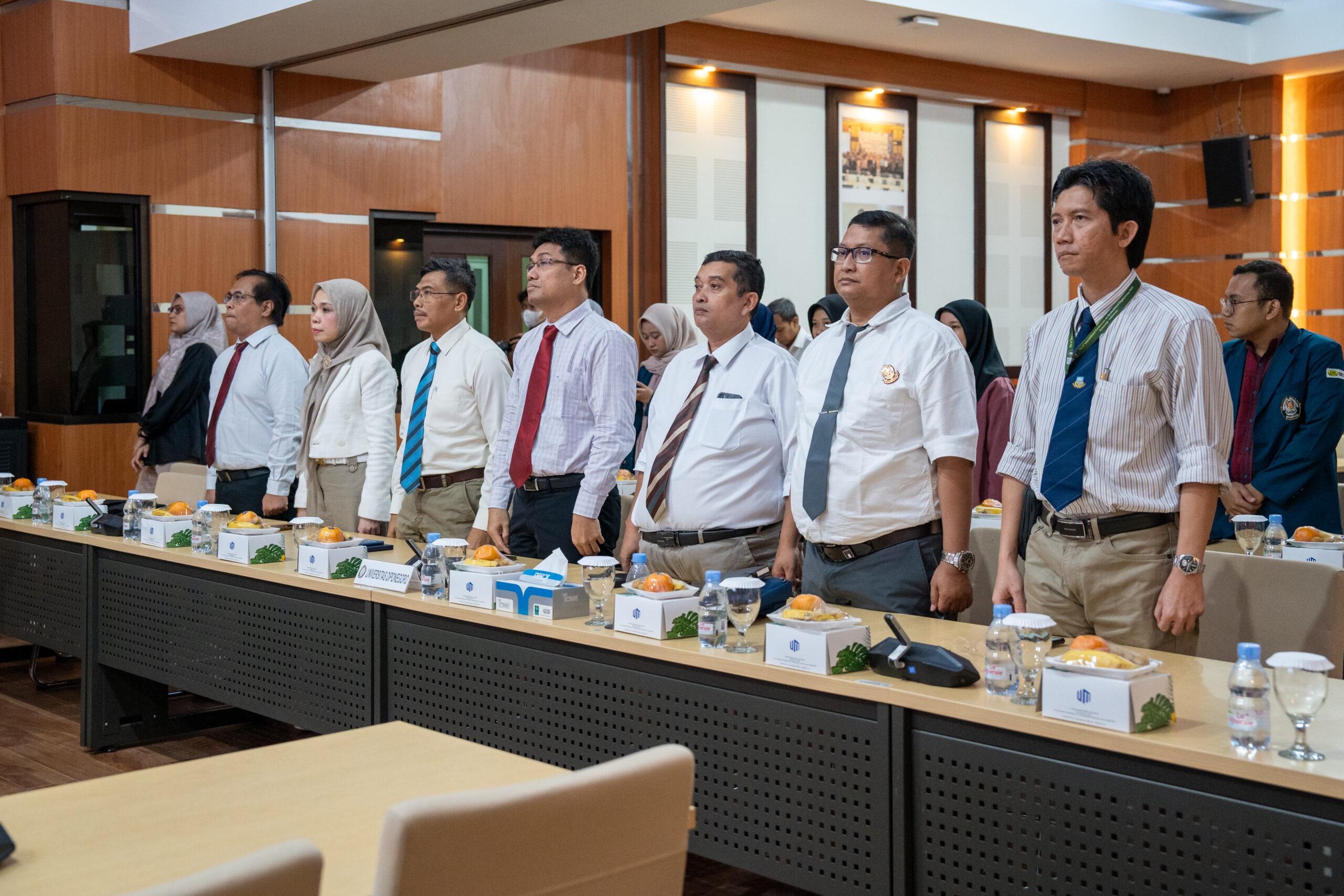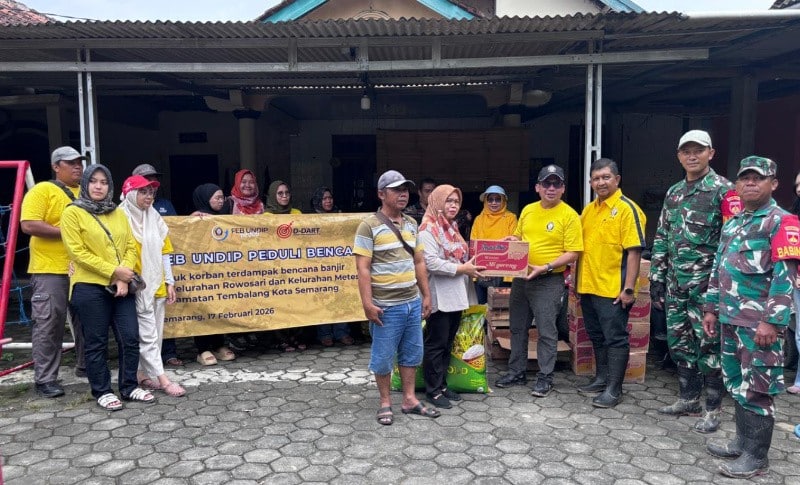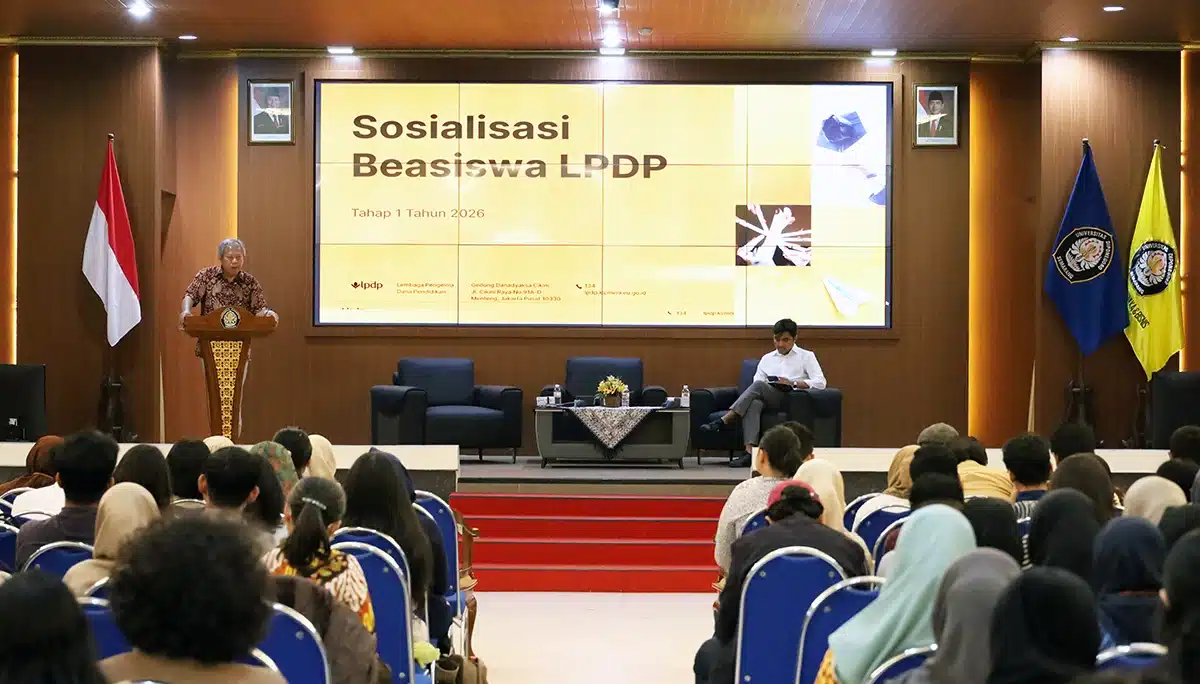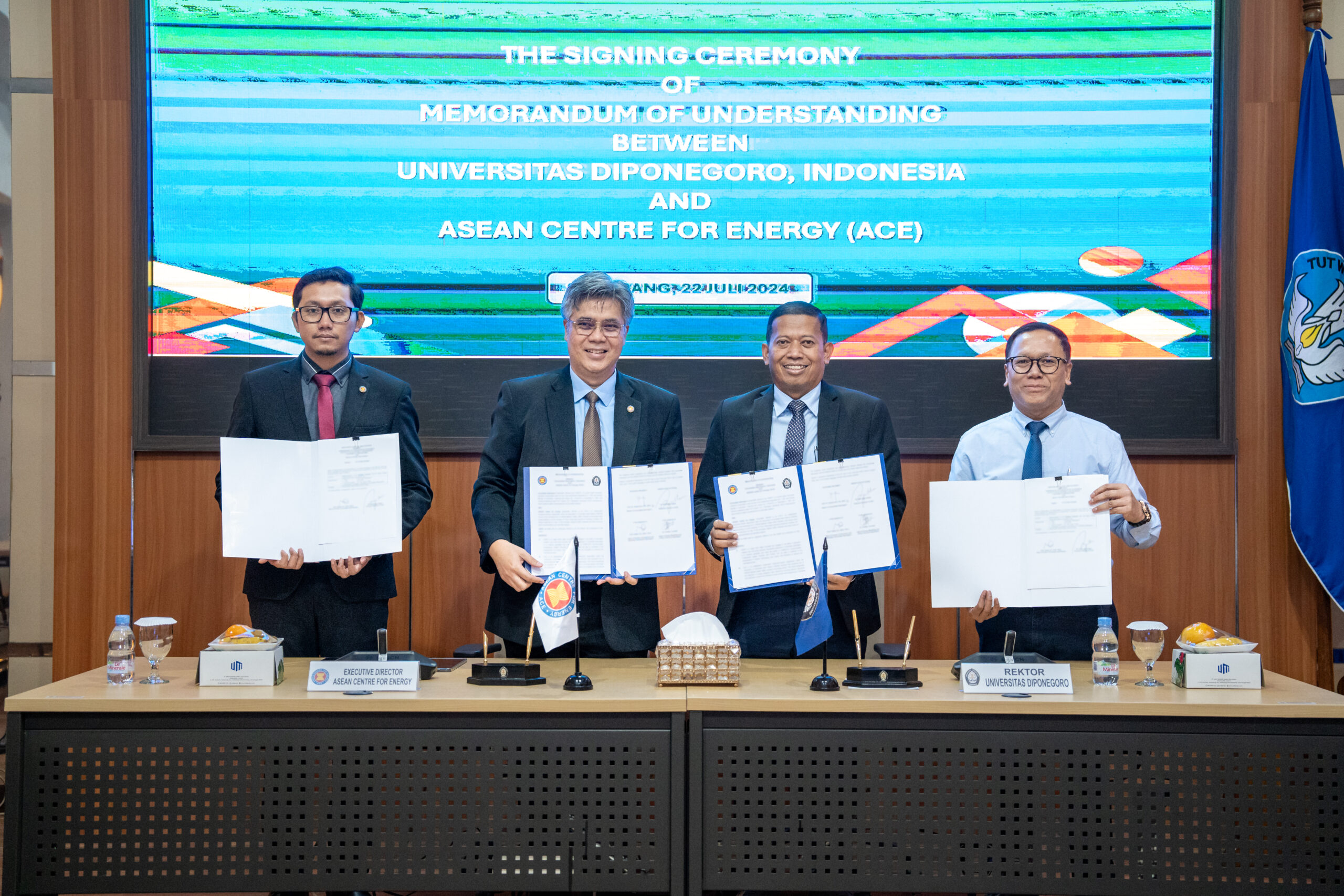Diponegoro University (UNDIP) and the ASEAN Centre for Energy (ACE), an inter-governmental organization comprising the 10 ASEAN member countries that manage energy conservation policies and programs, have initiated a collaboration for energy conservation for a sustainable future. This collaboration was marked by the signing of a Memorandum of Understanding (MoU) on Monday, July 22, 2024, at the Widya Puraya Building of UNDIP, Semarang. The MoU was signed by the Rector of UNDIP, Prof. Dr. Suharnomo, S.E., M.Si., and the Executive Director of the ASEAN Centre for Energy, Dr. Nuki Agya Utama, witnessed by Prof. Faisal, S.E., M.Si., Ph.D., Dean of the Faculty of Economics and Business at UNDIP, and Dr. Zulfikar Yurnaidi, Head of the Energy Modelling and Policy Planning Department.
Prof. Dr. Suharnomo, S.E., M.Si., as the UNDIP Rector, stated that through this collaboration, further discussions can be held with experts and practitioners in the field from both UNDIP and ACE. “Business, technology, and renewable energy are the future. This is a challenge for all of us, and we strive to make beneficial changes. Knowledge transfer is carried out through cooperation with many faculties,” said the Rector of UNDIP in his speech.
The Executive Director of the ASEAN Centre for Energy, Dr. Nuki Agya Utama, expressed his appreciation for the initiation of this collaboration. Research and development of renewable energy in ASEAN is a collective action. ACE and UNDIP encourage academics and universities to play a role in the Pentahelix collaboration, which involves synergy between academia, business, community, government, and media. “ACE, as a catalyst, promotes the strengthening of the four energy pillars: security, accessibility, affordability, and sustainability of energy. Energy challenges are a multisector responsibility, and we need academics as experts to provide input in public policy making,” said Dr. Nuki.
He further presented on “Energy Trends and Outlook in ASEAN.” Besides being a catalyst, ACE serves as a ‘think tank’ to conduct research and provide recommendations for public policy formulation and as a ‘knowledge hub’ that serves as a repository of data and its analysis. The knowledge learned at the university must reach the community and consumers because the market (consumers) relates to policy.
Dr. Nuki mentioned that by 2040, more than the use of petroleum energy will be required to meet global energy needs, necessitating the use of renewable energy and nuclear energy. “How ready are we in terms of technology? Are human resources ready? And what about the availability of minerals and how to process them? That’s why we collaborate with many universities to learn about energy conservation,” he explained.
As a green campus with the title of The 2nd Most Sustainable University in Indonesia by UI GreenMetric Rankings for four consecutive years in 2020, 2021, 2022, and 2023, UNDIP consistently supports programs and collaborations for energy development and conservation. The UNDIP Rector stated that UNDIP and all its elements participate in efforts to realize sustainable living and provide benefits to society #UndipBermanfaat. (Titis – Public Relations)
